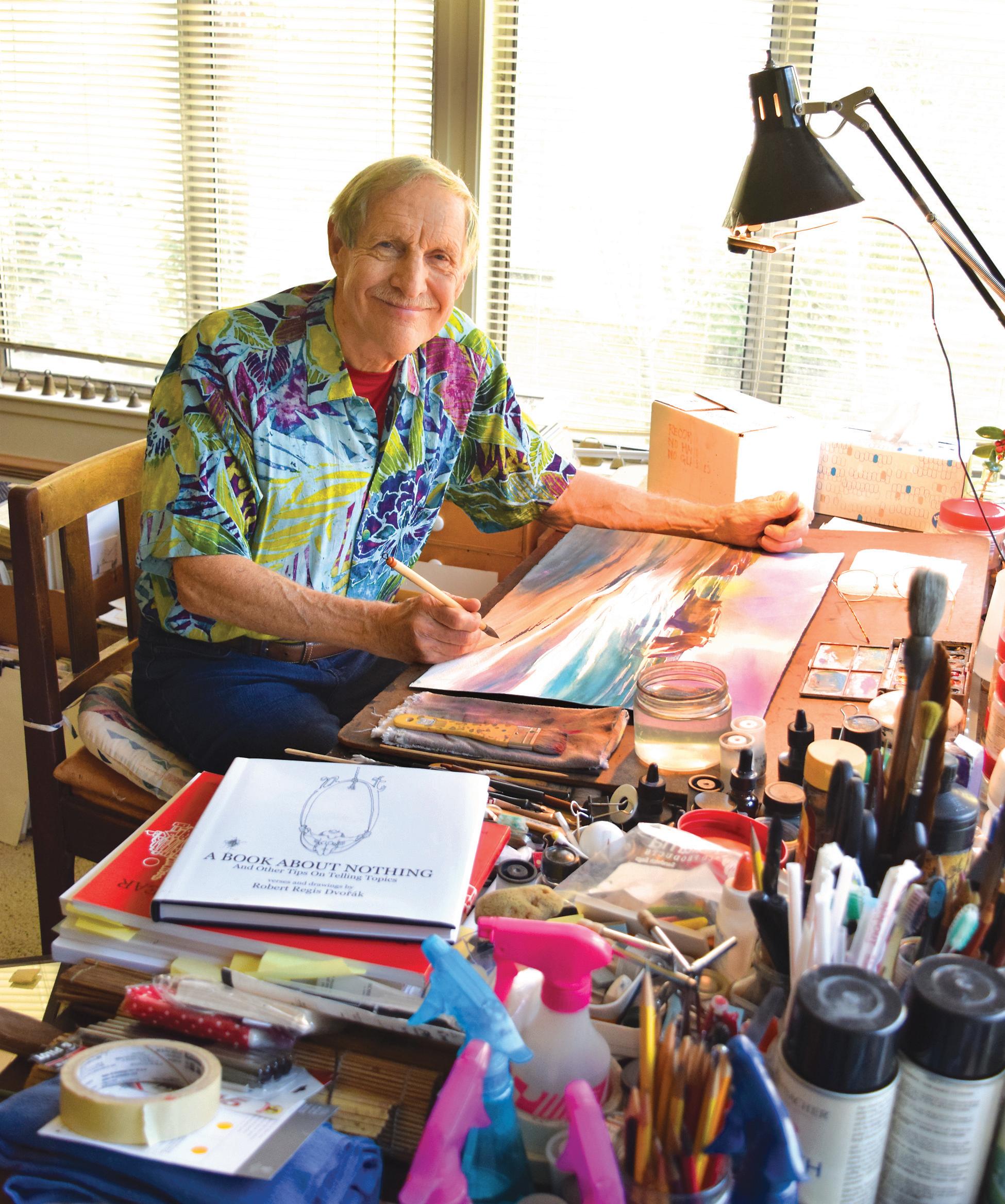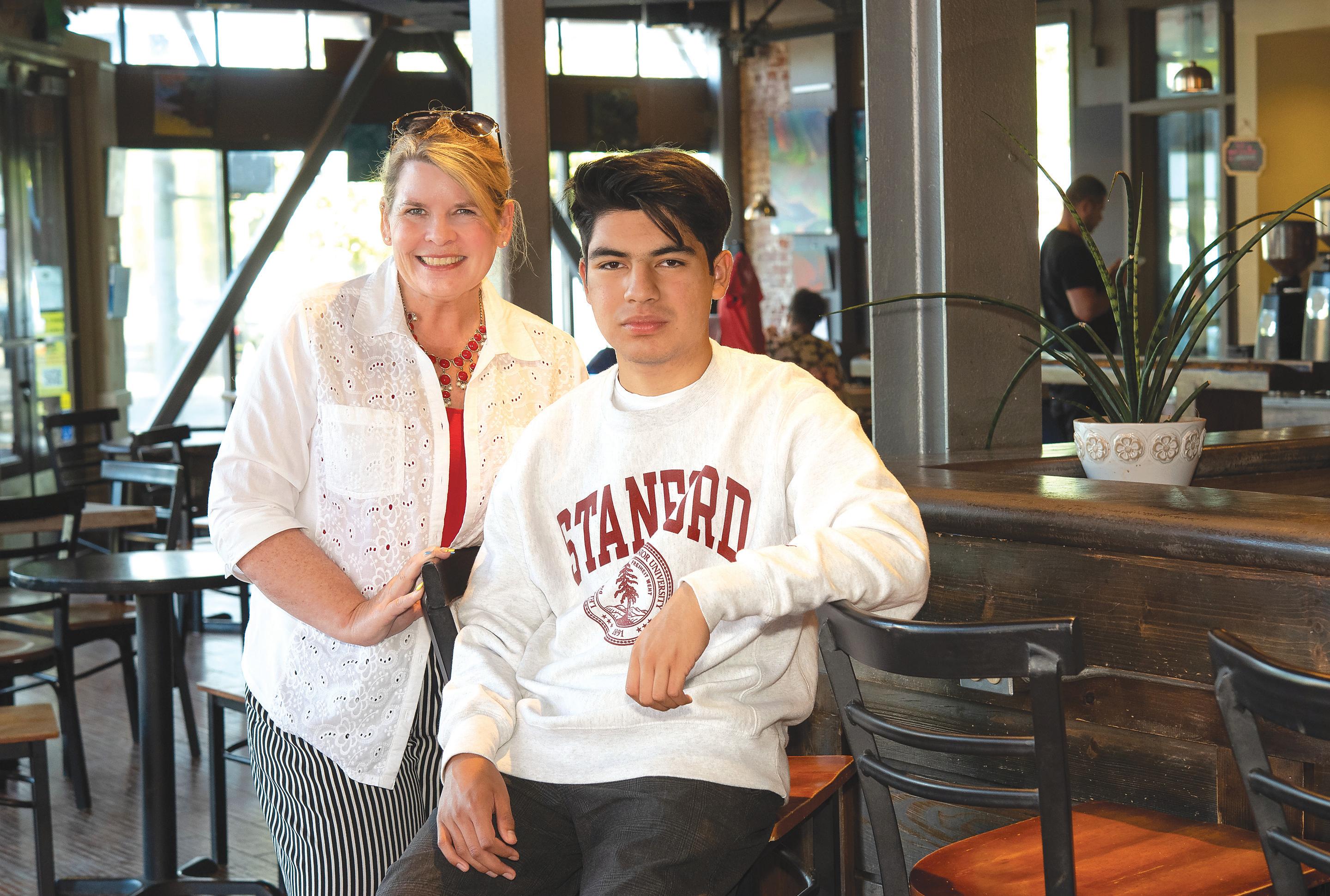Dignified Ends HOSPICE CHAPLAINS OFTEN SEE PEOPLE AT THEIR GREATEST
A
s a hospice chaplain, I’ve learned a surefire way to bring down any conversation. I just mention what I do. “Oh, that must be a really sad job,” is the familiar response. “It can be sad,” I admit. “But most often it’s the opposite.” Folks sometimes respond with a confused look, perhaps like you’re doing now. To make my point, I offer two contrasting stories. The first happened while I was working in a hospital. The patient was an 82-year-old farmer with a failing heart, someone nurses call a “frequent flyer.” His heart problems had given his family multiple scares, but somehow doctors managed to stabilize his condition and allow him to go home. Each time, doctors told him he was
NB By Norris Burkes Spirit Matters
34
POC JUL n 22
terminal and suggested he sign up for hospice. Nothing doing. The family thought he would improve with medication. But on his final visit to the hospital, things drastically changed. Doctors twice restarted his heart and sent him to our ICU on a breathing machine. After a few days, the family was asked if the farmer could be disconnected from life support and be placed on “comfort care.” “No,” the family said. “You must do everything possible.” In the next few moments, our staff tried to define “everything.” We explained that if his heart stopped again, “everything” could involve nurses straddling his chest to do compressions, likely breaking ribs. The family didn’t seem to consider the indignity of it all. “Just do it,” they said. The man lingered several more days and required multiple resuscitations before he died. The staff and I definitely had sad jobs that day. But a year later I came to work for hospice and saw a much different approach to death. One of the first patients I met was an octogenarian and member of the greatest generation. This Navy veteran was lucid enough to see the battle ahead, so he agreed to be placed on hospice.
The veteran’s family also asked the doctor to do “everything.” By that they meant: Please do everything to make his passing comfortable and dignified. The family invited me to talk with him. Within moments of our meeting, he expressed his faith in God and spoke of the love that awaited him in an afterlife. On my second visit, his heavenly expression of faith inspired me to start humming a hymn. My humming leaked out of his room and soon, one by one, his family added the lyrics that filled the sacred space. Some glad morning when this life is o’er, I’ll fly away; To a home on God’s celestial shore, I’ll fly away. A smile broke through the man’s pained expressions as he joined the chorus. I’ll fly away, oh glory, I’ll fly away; When I die, hallelujah, by and by, I’ll fly away. More humming. More quiet and then a request. “Will you say a prayer, chaplain?” his daughter asked. My prayer recalled the words of the psalmist, assuring this family there was no place their dad could go without the comforting presence of God.
“Where can I go from your spirit? Where can I flee from your presence? If I go up to the heavens, you are there,” the prayer went. At the end of the day, the difference between these two families was how they expressed their view of the word “everything.” The first family wanted doctors to do “everything” medically possible to keep their loved one alive. The second family wanted “everything” to include things that comforted medically, emotionally and spiritually. The farmer died alone, perhaps painfully, and likely scared. The veteran died as he had lived, with friends, family and faith. Yes, as a hospice chaplain, I have sad days. But those days often give way to fulfillment as I witness the dying courage shown in the faces of folks like this veteran. Norris Burkes can be reached at comment@thechaplain.net. Previous columns can be found and shared at InsideSacramento.com. Follow us on Facebook, Twitter and Instagram: @insidesacramento. Burkes is available for speaking at civic organizations, places of worship, veterans groups and more. For details and fees, visit thechaplain.net. n













